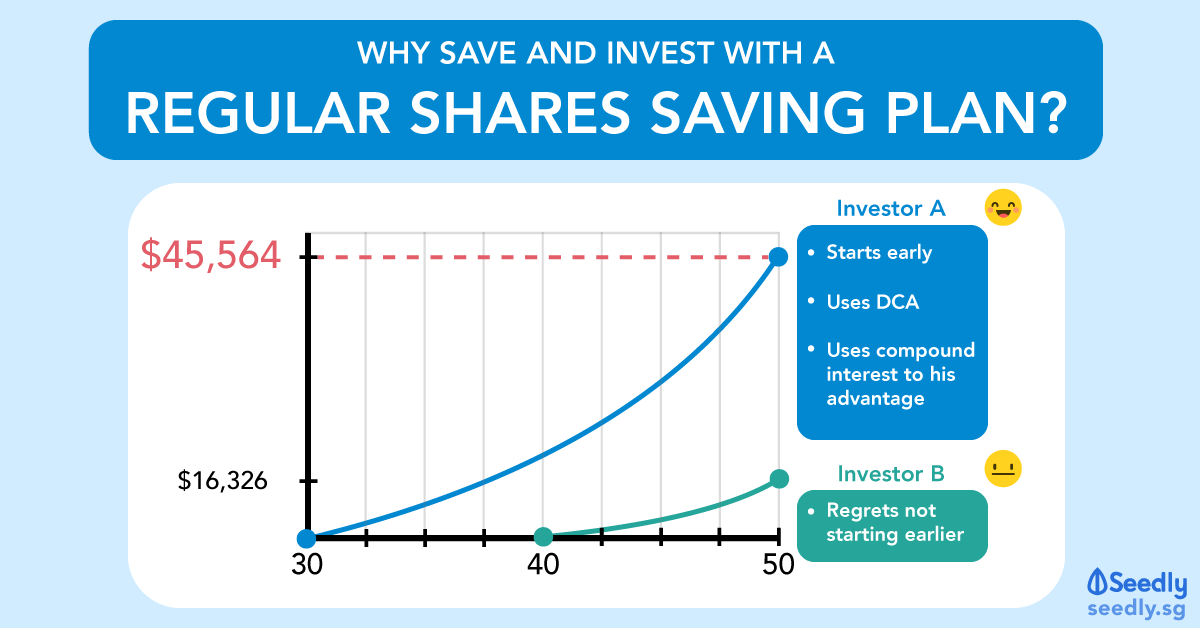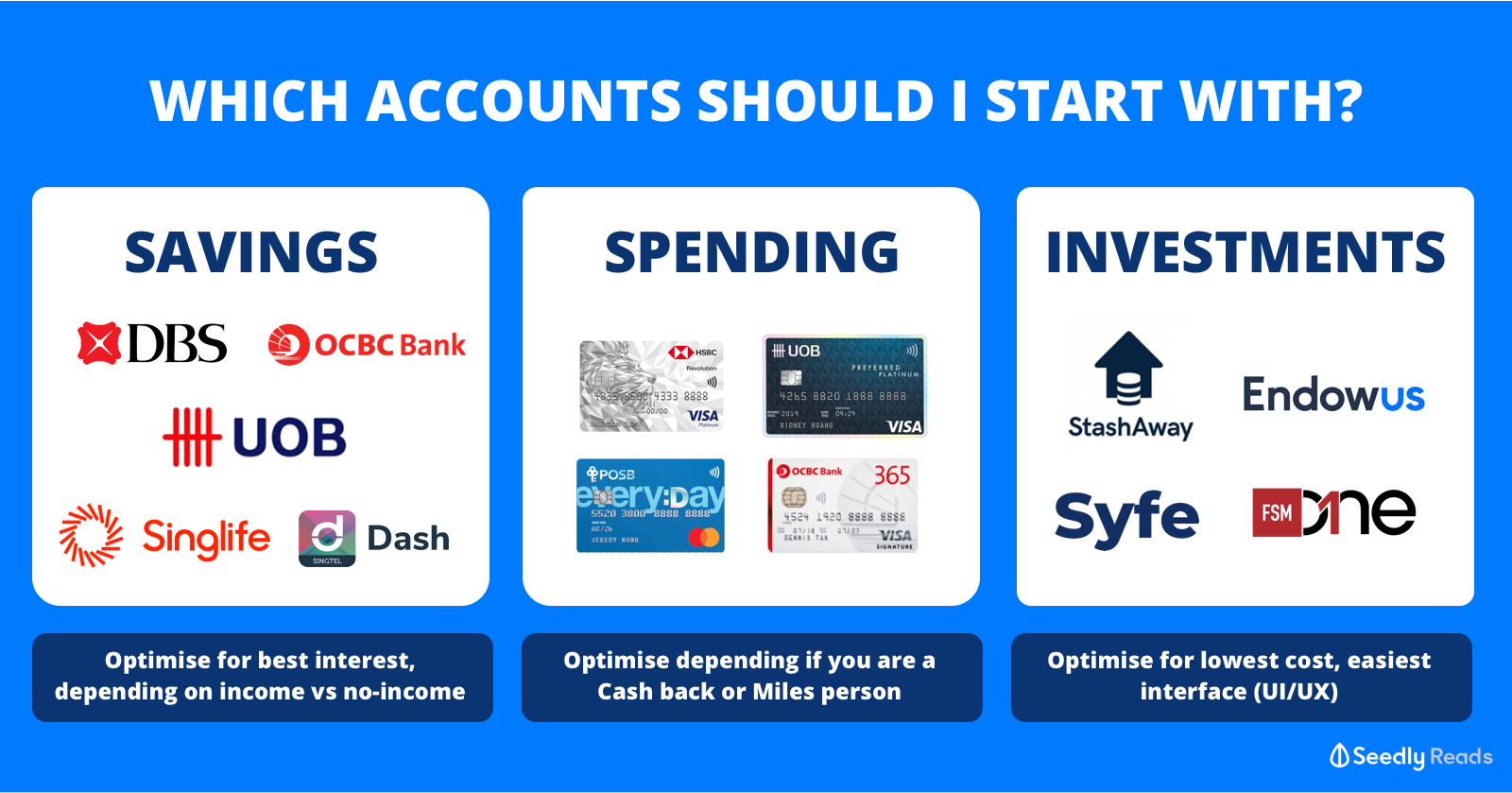Advertisement
Anonymous
Hi all, I'm 25 and have been in the work force for a couple years ready to embark on my investment journey and seeking advice on Regular savings plan (ETF)?
Is it wise to park $1000/month into a RSP ETF for the ultra long term (i.e Retirement)? If not, where is a good outlet to park these amount of money consistently to compound them. Thank you for your guidance in advanced!
3
Discussion (3)
Learn how to style your text
Ng Wei En
10 Jun 2020
Analyst at Mastercard
Reply
Save
Hey there!
In general, your investment amount should constitute possibly 10-20% of your pay after you've settled your insurance coverage and emergency funds. If you are talking about ultra long term, it means you need ultra long term emergency funds too, maybe from 6 months to a year, if you are conservative.
Also, your long term needs ultimately will have to be met through variable and guaranteed sources of income. Investment forms a variable form. You might want to consider a guaranteed form eg. endowment etc for your long term needs.
You also might want to consider diversifying your investment income further into different sectors, asset classes, countries etc. Its posing a concentration risk when you pump in $1000/month (depending on how much you earn monthly) into a particular RSP ETF.
Financial planning is an integral part of life. You can reach me here to find out more.
Reply
Save
Hello there! Not able to comment much whether is it wise to put $1000 per month into a RSP ETF. It r...
Read 1 other comments with a Seedly account
You will also enjoy exclusive benefits and get access to members only features.
Sign up or login with an email here
Write your thoughts
Related Articles
Related Posts
Related Products

DBS digiPortfolio
3.4
36 Reviews
Income Portfolio
Uts - Equity and Bonds
INSTRUMENTS
0.75%
ANNUAL MANAGEMENT FEE
SGD/USD1,000
MINIMUM INVESTMENT
4% p.a. income payouts
EXPECTED ANNUAL RETURN
Web and Mobile App
PLATFORMS

StashAway
4.7
1295 Reviews

Standard Chartered JumpStart Account
4.8
785 Reviews
Related Posts
Advertisement









Good that you start thinking of how to invest and compound your returns. It really pays well to start early if you haven't already read this article from Seedly HERE.
To determine which ETF to park your money into, you can take a look at the historical performance of the various ETFs. Of course, past performance is not indicative of future returns. You can consider the following options which are ways you can invest in ETFs and I'll roughly calculate the fees you can expect to incur.
1. Roboadvisors - These platforms typically let you choose your desired risk profile and they will automatically allocate your funds to a mix of bonds, ETFs and Gold to match your risk appetite. From time to time, they will optimise and rebalance your portfolio based on the economic environment. In return, you expect to pay about 0.65-0.8% in management fees for a typical investor which is very reasonable in my opinion. A $1k/mo investment using this method should amount to annual management fees of around $96(based on 0.8%).
2. Purchasing ETFs directly from brokers - This can be done via stockbrokers like FSMone which do have a Regular Savings Plan(RSP). They currently charge a commission of 0.08% or minimum US$1 for US ETFs for each purchase. That works out to be US$12 per year . Do note that FSMone charges dividend handling fees which is 1% of gross dividend subject to minimum USD 2.50,maximum USD 25. You can expect to pay at least $2.50 x 12 = US$30 in dividend handling fees.This adds up to $42 in total fees for U.S ETFs.
3. Purchasing ETFs from banks - The first time I ever invested in an ETF was with POSB when I purchased the POSB Invest Saver Regular Savings Plan(RSP). Usually, for local banks, you are only able to purchase ETFs with exposure to Singapore or Asia. Based on past performance, these ETFs do not perform as well as compared to US ETFs or ETFs with a more global and diversified portfolio. Sales charges are around 0.5-0.82%. That would add up to about $98.40 in fees(based on 0.82%).
While the cheapest way to buy an ETF directly would be from a stockbroker, don't forget that roboadvisors charge management fees because they actively monitor your portfolio and perform optimisation so as to maximise your returns and also protect your downside. Sales charge by banks who charges you approximately the same rate as roboadvisors simply levies an admin fee without doing anything to add value to your investment.
If you would like to have full control over your investment in ETFs, then buying directly from stockbrokers would be the cheapest and best way. Otherwise, roboadvisors can be a good alternative to consider.